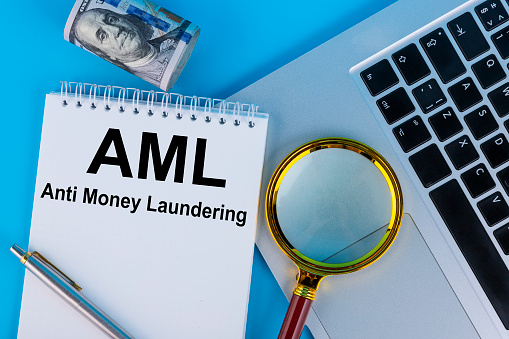Introduction
Whether it’s anti-money laundering (AML) or counter-terrorist financing (CFT), there’s little doubt that regulation is becoming increasingly stringent, frequent, and costly to manage: Worldwide spending on AML compliance might exceed $15 billion by 2022. It also costs more not to comply, with higher fines and possibly terrible consequences for business reputations. This is mirrored in the worldwide survey results. Where the two most significant issues were highlighted as the rate of regulatory change and a shortage of competent personnel.
Challenge For the middle east
The Middle East area presents unique problems. With an extremely diverse spectrum of both multinational and local banks with a worldwide reach. There is also a significant degree of money service enterprises and cash transactions. It also includes global trading centers. Hence, it includes geographical closeness to unstable or sanctioned places.
What’s striking is the stark disparity between global and Middle Eastern scores in these two important categories. We recognize the challenge in obtaining qualified resources in the region. This demonstrates the rising demand from financial institutions for proper employees.
Dubai Financial Services Authority (DFSA): Its Importance
Dubai is one of the most prominent financial centers in the UAE and the Middle East. In its special economic zone, the Dubai International Financial Centre (DIFC), supports a variety of international commercial interests. The DIFC, which was founded in 2004, is home to hundreds of banking and financial organizations. Since its establishment, it has developed to become one of the world’s top 10 financial hubs. Dubai’s profile makes it a desirable target for financial fraudsters. Therefore, they want to take advantage of the city-wealth state’s concentration to launder money or fund terrorist operations.
The DIFC has its regulatory structure in place to deal with the financial challenges it faces, and it is a distinct jurisdiction from the rest of the UAE. The Dubai Financial Services Authority (DFSA) has taken the charge of preventing money laundering and other financial crimes in the special economic zone, oversees this regime.
Anti-Money Laundering Laws in Dubai
Anti-money laundering law in Dubai is mostly based on UAE federal legislation. Which was created to comply with worldwide AML/CFT standards outlined in the Financial Action Task Force’s recommendations (FATF). The following are some of the most important federal laws that govern AML in Dubai:
- Money Laundering and Terrorism Financing Crimes: Federal Law No. 4 of 2002.
- Decree on Combating Terrorism Offenses (Federal Law No. 1 of 2004).
- Anti-Money Laundering and Counter-Terrorism Financing and Combating Illegal Organizations Financing Federal Law No. 20 of 2018.
Since, the DIFC Regulatory Law of 2004 imposes unique AML/CFT restrictions on the special economic zone, which is under the authority of the DFSA, in addition to federal UAE-wide legislation. Article 7(1) of the Regulatory Legislation of 2004 mandates compliance with UAE federal law by DIFC businesses. Banks, financial institutions, and other obliged businesses applied for and got a license from the DFSA in order to operate in the DIFC.
Anti-Money Laundering Compliance in the DIFC
The DFSA requires enterprises in the DIFC to take a risk-based approach to money laundering in compliance with FATF principles. In reality, this means companies must create an AML/CFT program that is commensurate to the money laundering risks they face, and it must contain the following procedures and processes:
Customer due diligence:
Companies should implement suitable CDD methods to check their clients’ identities. They should guarantee that they are being truthful about the nature of their business. Hence, customers who pose a higher risk of money laundering should be subjected to increased due diligence (EDD).
Transaction monitoring:
Customer’s activities and accounts monitored for behaviour. It might suggest money laundering, such as transactions surpassing a specific threshold. Therefore, it can include unusual transaction patterns, or transactions involving high-risk nations.
Screening:
Customers screened for negative media coverage and status as politically exposed person. Also against appropriate international sanctions lists.
Compliance officer:
Internal anti-money laundering procedures should be monitored by a compliance officer, also known as a money laundering reporting officer (MLRO), who has adequate authority and experience to properly carry out their duties.
AML handbook:
Though, firms have special modules for the application of AML/CFT legislation. It’s inside the DIFC is issued an AML Rulebook by the DFSA. The handbook explains how to use the risk-based strategy. It also helps to interpret AML/CFT regulations. The DFSA AML rules should be familiar to all banks. Also, it should be familiar to financial institutions operating inside the DIFC.
UAE and Anti-Money Laundering
To prevent money laundering and terrorist funding, Saudi Arabia enhanced its regulatory and legal framework.
In recent years, the kingdom has been working hard to improve its legislative and regulatory structure. This helps to combat money laundering and terrorist financing. Hence, based on its belief in the importance of improving compliance with the international standards issued by the Financial Action Task Force for combating these crimes.
Countries all across the world are tightening legislation to combat money laundering. This helps in the prevention of terrorist financing. The UAE’s Ministry of Economy has established a new anti-money laundering unit. This helps to verify that all non-financial firms and professions follow local rules.
This is to “improve transparency in financial transactions” and increase monitoring of money transfers. The UAE’s Central Bank has ordered all hawala providers – informal funds transfer service providers for people using non-bank means – to register with the central bank.
Enforcement by the DFSA
When businesses in the DIFC fail to follow AML/CFT laws, the DFSA has the authority to investigate the violations. As part of the inquiry, the DFSA may seek a range of evidence. Therefore, this includes acquiring accounts and documents and conducting sworn interviews with workers.
The DFSA has the authority to apply penalties. It includes fines, license suspensions or revocations, or administrative restructuring. If enterprises judged have fallen short of required compliance requirement.Money laundering charges include penalties. Which ranges from 10,000 to one million dirhams, as well as jail terms of up to ten years.
Detection of AML/CFT activities
The importance that Middle Eastern organizations place on ‘Know Your Client’ measures is spot on. People need to understand who they are working with. Whether it’s a bank or another form of organization. With so much business being performed electronically, with individuals they will never meet, this has never been more vital than it is now. However, by conducting business in this manner, people are effectively placing their brand in their hands.

